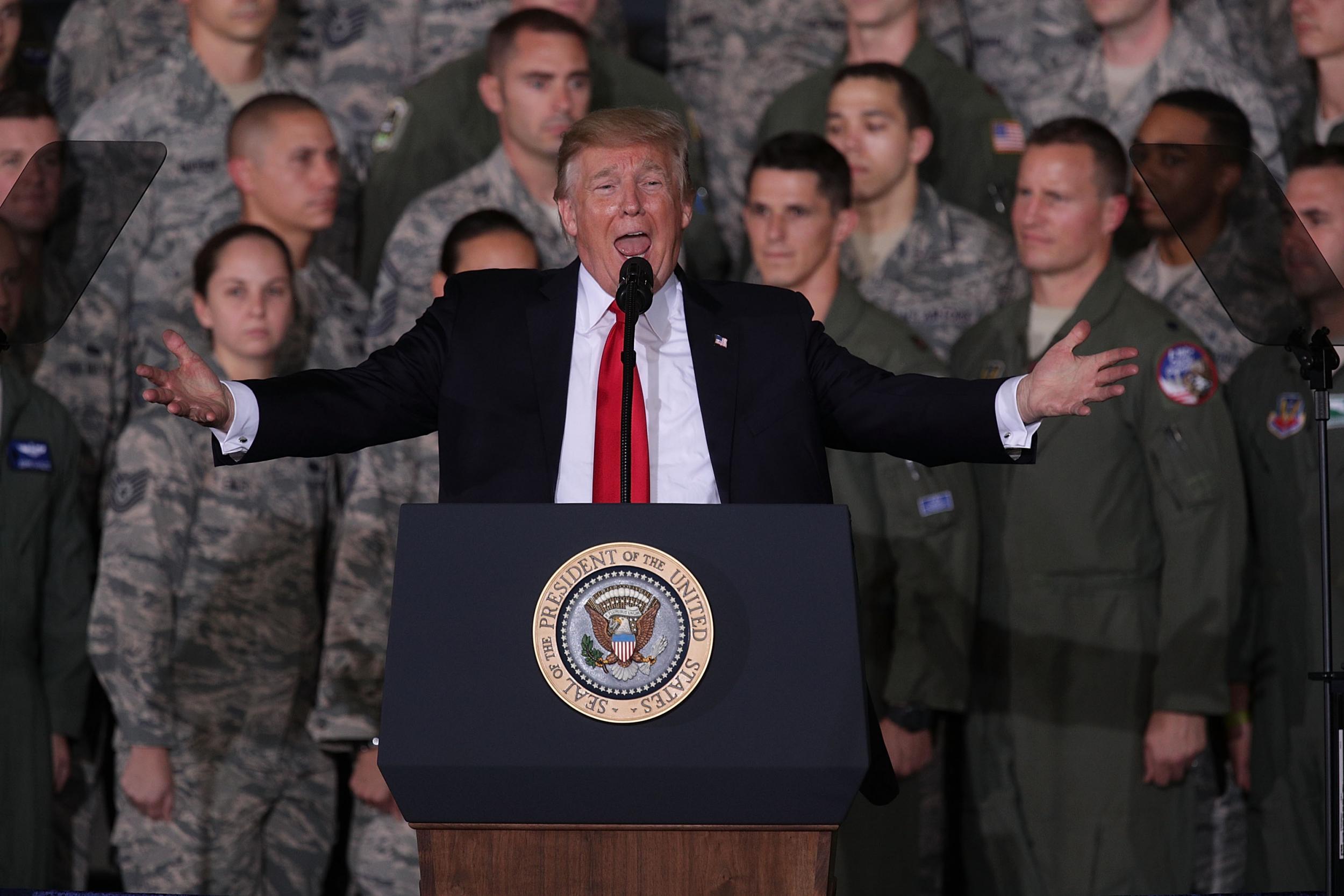Paris agreement: US will still pull out of climate deal, says Trump adviser Gary Cohn
The President's administration says that it would be open to renegotiating the deal

Months after President Donald Trump announced that the US would pull out of the Paris climate change agreement, his administration is trying to clarify its position.
Mr Trump’s top economic adviser Gary Cohn reaffirmed his boss’ position on the deal during a meeting with ministers during the United Nations General Assembly in New York, and said that the White House would still withdraw from the agreement unless they could reengage and renegotiate terms that are more favourable to the US.
“We made the president’s position unambiguous, to where the president stands, where the administration stands on Paris,” Mr Cohn said after an informal breakfast meeting with environment, energy, and foreign ministers from about a dozen countries.
Mr Trump announced in June that he would pull the United States out of the landmark agreement, which includes every country in the world except Syria and Nicaragua. Nicaragua refused to join the agreement because they said it did not do enough to address man-made climate change. Syria is currently in the middle of a deadly and brutal civil war, and its ability to hold diplomatic talks has been hampered.
Its not clear what exactly the President would like to see changed in the climate deal, which was negotiated by former President Barack Obama’s administration.
The deal relies on voluntary pledges from signatory countries to reduce greenhouse gas emissions, and provides economic incentives for developing countries to invest in renewable energy infrastructure, which can be cost prohibitive for poorer nations compared to legacy energy sources like coal and oil.
In signing the climate agreement in 2014, Mr Obama pledged that the US would make $3 billion in payments to that fund over four years. Roughly $1 billion of that commitment had been paid out by the time Mr Trump took over the White House, promising to end those payments.
But, while the Paris agreement was was a major and historic deal — and came after years of efforts by the international community to figure out what sort of agreement could be palatable enough to get widespread support — it fell short of having mandatory emissions cuts for individual countries, and did not impose mandatory donations to the fund.
Mr Trump’s decision to announce America’s withdrawal from the climate agreement drew harsh and widespread criticism. Threaders of France, Italy, and Germany all signed a joint letter condemning the actions, and many countries indicated that they would go ahead with the agreement.
The President was also rebuked at home, where hundreds of local leaders including mayors and state governors, said that they would continue to plan for a future in which they meet the climate obligations negotiated by Mr Obama.
Join our commenting forum
Join thought-provoking conversations, follow other Independent readers and see their replies
Comments
Bookmark popover
Removed from bookmarks